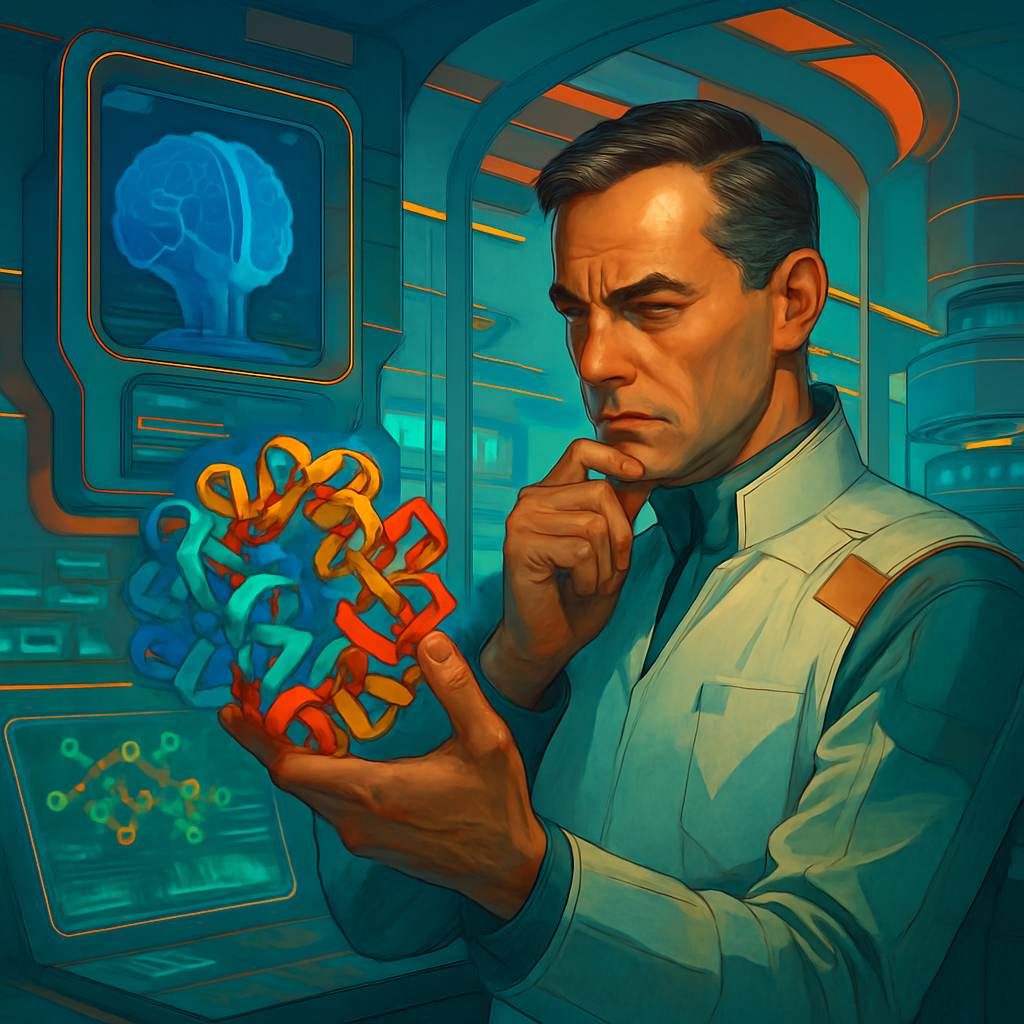In Search of the Elusive Artificial Intelligence Pharmaceuticals: A Comedic Inspection

“Where Are All the AI Drugs?”
“DeepMind has already made a number of noteworthy contributions to the biomedical research community,” says a spokesperson. “Its most recent project—a system that can predict the shape of nearly every protein in the human body—is a testament to the promise of AI in drug discovery.”
In a galaxy not so far away, the brilliant nerds at DeepMind have done it again, continuing to flex their brain muscles and churn out game-changing contributions in biomedical research. Systems are being created which, frankly, sound more like scenes from a fever dream of a sci-fi buff than our mundane nine-to-five reality. Indeed, their most recent brainchild, a system that can predict the shape of almost every protein in the human body, isn’t something one stumbles upon in everyday coffee shop conversation. And of course, the burgeoning promise of AI in drug discovery has every labcoat in town buzzing.
The inherent complexity of the biological systems has always been a battlefield for scientists. Unraveling the mysteries tucked away within every cell? That’s like attempting to figure out the plot of a Christopher Nolan film in real-time. Good luck with that! Apparently though, this is just another day at the office for DeepMind’s squad. They’ve whipped up AlphaFold, an AI that’s really good at folding (no, we’re not talking cranes and swans here). The ‘folding’ being referred to here, is, in fact, protein folding, something that’s about as easy as performing a root canal on a shark.
When it comes to medical research, every nanoscopic detail is a brick in the wall. The way a protein crinkles can lead to an information superhighway of disease understanding and potential treatments. Easy-peasy you’d think, right? But each protein folding in a unique way is like a diva stepping on stage with an exclusive demand. It took the biological community half a century to come this far in protein folding prediction, and now AI is showing up, casually ready to revolutionize the scene.
Beyond protein origami though, AI seems primed for shaking up the whole biomedical research landscape. It’s like the new kid transferring into the school, instantly becoming the star quarterback, straight-A student, and prom king all in one. Its applications may soon extend to helping predict cell behavior under specific treatments, how drugs interact within the body, and what novel chemicals could potentially serve as new drugs.
However, it would be naive to believe that all these advancements are devoid of ethical considerations. Think a Pandora’s box of data privacy issues and an insider trading-esque scenario within the research community. Indeed, even as the DeepMind folks are met with a swarm of ‘oohs’ and ‘ahs’, they also face a gauntlet of raised eyebrows.
In conclusion, while it’s exciting that AI is budding into the smarty pants of the drug discovery world, it’s crucial that responsible practices and methods follow suit. After all, no one likes the kid who cheats off everyone else’s test paper. But for the time being, it seems safe to say that the good folks at DeepMind don’t need to crib; they’re writing the whole darn textbook!
Read the original article here: https://www.wired.com/story/artificial-intelligence-drug-discovery/
